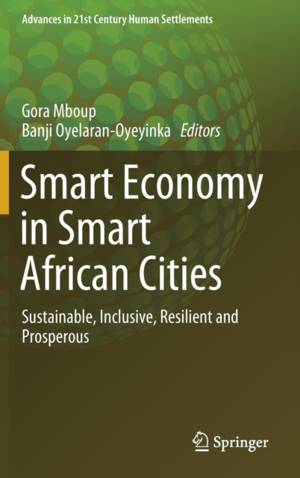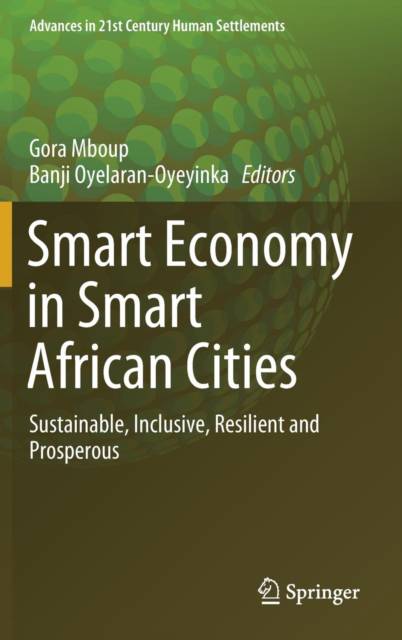
- Afhalen na 1 uur in een winkel met voorraad
- Gratis thuislevering in België vanaf € 30
- Ruim aanbod met 7 miljoen producten
- Afhalen na 1 uur in een winkel met voorraad
- Gratis thuislevering in België vanaf € 30
- Ruim aanbod met 7 miljoen producten
Zoeken
Smart Economy in Smart African Cities
Sustainable, Inclusive, Resilient and Prosperous
€ 153,95
+ 307 punten
Omschrijving
This book highlights the use of information and communication technology (ICT) infrastructures in order to develop smart cities and produce smart economies in Africa. It discusses a robust set of concepts, including smart planning, smart infrastructure development, smart economic development, smart environmental sustainability, smart social development, resilience, and smart peace and security in several African cities. By drawing on the accumulated knowledge on various conditions that make cities smart, green, livable and healthy, it helps in the planning, design and management of African urbanization. In turn, it fosters the development of e-commerce, e-education, e-governance, etc. The rapid development of ICT infrastructures facilitates the creation of smart economies in digitally served cities and towns through smart urban planning, smart infrastructures, smart land tenure and smart urban policies. In the long term, this can reduce emissions of CO2, promote the creation of low carbon cities, reduce land degradation and promote biodiversity.
Specificaties
Betrokkenen
- Uitgeverij:
Inhoud
- Aantal bladzijden:
- 492
- Taal:
- Engels
- Reeks:
Eigenschappen
- Productcode (EAN):
- 9789811334702
- Verschijningsdatum:
- 5/03/2019
- Uitvoering:
- Hardcover
- Formaat:
- Genaaid
- Afmetingen:
- 156 mm x 234 mm
- Gewicht:
- 893 g

Alleen bij Standaard Boekhandel
+ 307 punten op je klantenkaart van Standaard Boekhandel
Beoordelingen
We publiceren alleen reviews die voldoen aan de voorwaarden voor reviews. Bekijk onze voorwaarden voor reviews.










